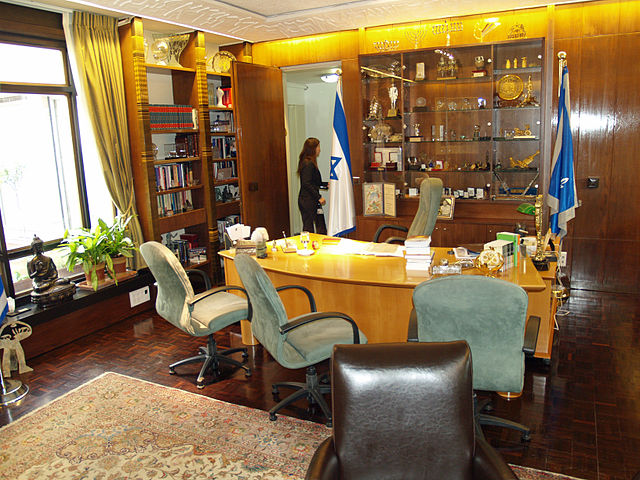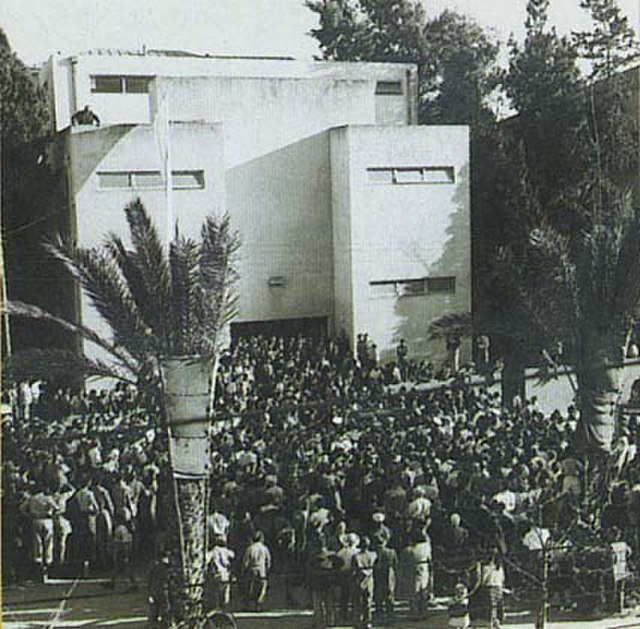Politics in Israel are dominated by Zionist parties. They traditionally fall into three camps, the first two being the largest: Labor Zionism, revisionist Zionism, and religious Zionism. There are also several non-Zionist Orthodox religious parties and non-Zionist secular left-wing groups, as well as non-Zionist and anti-Zionist Israeli Arab parties.
Office of the President of Israel in 2007
The Knesset (Parliament of Israel)
The Peace Kids, a mural affiliated with the Israeli left in Tel Aviv depicting Palestinian Handala and Israeli Srulik embracing one another
Israeli Declaration of Independence
The Israeli Declaration of Independence, formally the Declaration of the Establishment of the State of Israel, was proclaimed on 14 May 1948 by David Ben-Gurion, the Executive Head of the World Zionist Organization, Chairman of the Jewish Agency for Palestine, and soon to be first Prime Minister of Israel. It declared the establishment of a Jewish state in Eretz-Israel, to be known as the State of Israel, which would come into effect on termination of the British Mandate at midnight that day. The event is celebrated annually in Israel as Independence Day, a national holiday on 5 Iyar of every year according to the Hebrew calendar.
The original document of Israel's Declaration of Independence
On the day of its proclamation, Eliahu Epstein wrote to Harry S. Truman that the state had been proclaimed "within the frontiers approved by the General Assembly of the United Nations in its Resolution of November 29, 1947".
A celebratory crowd outside the Tel Aviv Museum, located in 16 Rothschild Boulevard, to hear the Declaration
David Ben-Gurion declaring independence beneath a large portrait of Theodor Herzl, founder of modern Zionism







